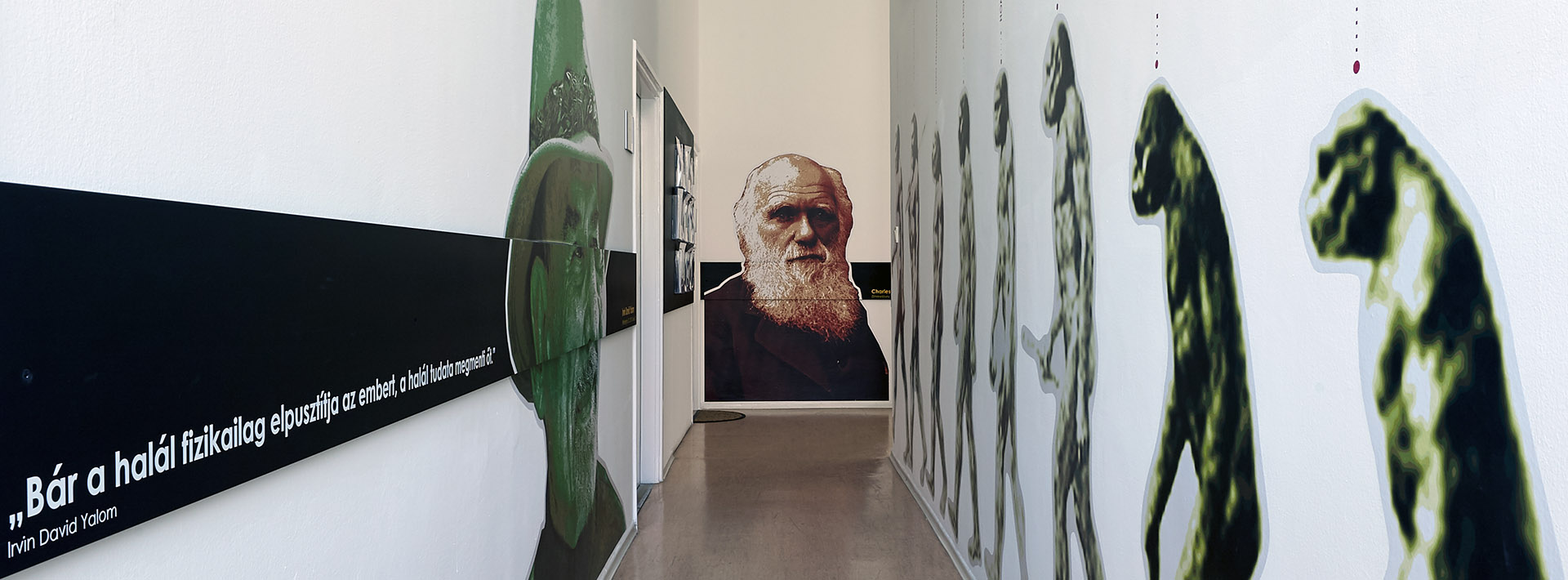Adatok
A Tantárgybejelentőben megadott hivatalos adatok az alábbi tanévre: 2024-2025
Tantárgyfelelős
-
Füzesi Zsuzsanna
professor,
Óraszámok/félév
előadás: 0 óra
gyakorlat: 0 óra
szeminárium: 14 óra
összesen: 14 óra
Tárgyadatok
- Kód: OTL-COMM-T
- 1 kredit
- Biotechnology BSc
- Soft Skills for Biotechnology modul
- spring
Nincs
Kurzus létszámkorlát
min. 5 fő – max. 99 fő
Tematika
The course will introduce students to the theoretical and practical aspects of basic communication skills. In addition to the theoretical background of communication (types and levels of communication; communication styles and principles; the role of suggestive communication; intercultural communication), the seminars will provide students with communication exercises to develop their advocacy, conflict management and empathy skills, which are essential for effective work and cooperation. By developing communication competences, students will increase their sense of ownership and develop their ability to use professional and effective oral, written and network communication methods and tools.
Előadások
Gyakorlatok
Szemináriumok
- 1. General communication skills. (Purposes, principles, types, levels and laws of communication. The importance of information in interpersonal relationships. The role of verbal and non-verbal communication. Communication noise. What makes our communication effective?) - Gács Boróka
- 2. General communication skills. (Purposes, principles, types, levels and laws of communication. The importance of information in interpersonal relationships. The role of verbal and non-verbal communication. Communication noise. What makes our communication effective?) - Gács Boróka
- 3. Communication styles (Introduction to communication styles: aggressive, passive, manipulative and assertive communication, their backgrounds, behavioural characteristics and effects. Interactive presentation of the assertiveness model; the results of assertive communication. Requirements for effective written and oral communication. (Awareness of own communication style - MBTI test and situational exercise) - Gács Boróka
- 4. Communication styles (Introduction to communication styles: aggressive, passive, manipulative and assertive communication, their backgrounds, behavioural characteristics and effects. Interactive presentation of the assertiveness model; the results of assertive communication. Requirements for effective written and oral communication. (Awareness of own communication style - MBTI test and situational exercise) - Gács Boróka
- 5. Nonviolent communication (Communication between the giraffe and the jackal based on Marshall Rosenberg’s work . The role of objective assessment of the situation, i.e. the role of active attention in understanding individuals in order to avoid misunderstandings. Distinguishing between feelings and thoughts. The ability to say no, to criticise and to make requests assertively. Situational exercises.) - Gács Boróka
- 6. Nonviolent communication (Communication between the giraffe and the jackal based on Marshall Rosenberg’s work . The role of objective assessment of the situation, i.e. the role of active attention in understanding individuals in order to avoid misunderstandings. Distinguishing between feelings and thoughts. The ability to say no, to criticise and to make requests assertively. Situational exercises.) - Gács Boróka
- 7. Situational exercises. - Gács Boróka
- 8. Situational exercises. - Gács Boróka
- 9. Effective communication in dealing with conflicts (Motivation, creating win-win situations, argumentation, reconciling different points of view, conducting conflict discussion, questioning techniques. Information distortion and its consequences. The role of empathy in communication.) - Gács Boróka
- 10. Effective communication in dealing with conflicts (Motivation, creating win-win situations, argumentation, reconciling different points of view, conducting conflict discussion, questioning techniques. Information distortion and its consequences. The role of empathy in communication.) - Gács Boróka
- 11. The suggestive role of communication (broken record technique, yes-set, follow-lead, positive/negative questioning, the role of control, echo technique. Intercultural communication specificities. - Gács Boróka
- 12. The suggestive role of communication (broken record technique, yes-set, follow-lead, positive/negative questioning, the role of control, echo technique. Intercultural communication specificities. - Gács Boróka
- 13. Scientific communication (Communication during research, with subjects) - Gács Boróka
- 14. Scientific communication (Communication during research (with participants and collegues) - Gács Boróka
A tananyag elsajátításához szükséges segédanyagok
Kötelező irodalom
Notes from the seminars.
Saját oktatási anyag
Jegyzet
Ajánlott irodalom
Wambui, Tabitha: Communication Skills, Students Coursebook, 2015
Huber-Kriegler, M., Lázár, I., & Strange, J.: Mirrors and windows: An intercultural communication textbook. Council of Europe, 2003
Guenther, L.: A textbook linking theory, research, and practice of science communication, 2020
Katz, N. H., Lawyer, J. W., Sweedler, M., Tokar, P., & Sossa, K. J.: Communication and conflict resolution skills. Kendall Hunt Publishing, 2020
DeVito, J. A.: The Interpersonal Communication Book. Instructor, 1, 18, 2019
A félév elfogadásának feltételei
.
Félévközi ellenőrzések
None.
Távolmaradás pótlásának lehetőségei
None.
Vizsgakérdések
1. General communication skills.
2. Communication style
3. Nonviolent communication
4. Situational exercises
5. Effective communication in dealing with conflicts
6. The suggestive role of communication
7. Scientific communication
Vizsgáztatók
- Gács Boróka
Gyakorlatok, szemináriumok oktatói
- Gács Boróka
